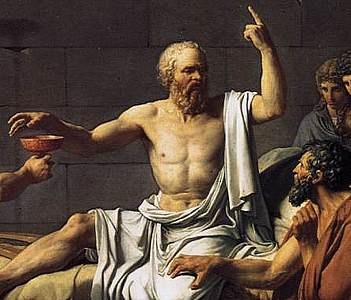“Wise men speak because they have something to say; fools because they have to say something.”
– Plato
Over the past week I struggled with reading through Plato’s The Trial and Death of Socrates. Here are a few things I took away from the experience:
- The Greeks were liars.
From the footnotes I learned nearly all of Socrates’ dialogues within the book were fictitious. The speeches weren’t recorded verbatim, instead they loosely represent the overall theories that Socrates would have supported. Further independent investigation revealed that the Greeks weren’t too keen on historical accuracy. Works like The Histories of Herodotus contain multiple conflicting accounts of various events, letting the reader decide which is true.

- Real philosophy is incredibly difficult to comprehend.
Although it was only 58 pages long, The Trial and Death of Socrates was something I struggled through. It’s a dense work that required me to constantly reread entire sections. Unlike modern “philosophers” like Robert Greene, Plato doesn’t dumb things down for a mainstream audience. There are no anecdotes or graphs to make lessons easier. Being a fan of challenge, I liked the book’s difficulty. It was also, to some extent, nice to have to work hard at understanding what was written.
- I need to read more classics.
After finishing The Trial and Death of Socrates, I decided that I should start reading more Greek literature. While it is dense and difficult to take in, I think that I can benefit from reading more ancient Greek authors. My next endeavor while be Euripides Ten Plays.
If you’re looking for a challenging read, I highly recommend picking up The Trial and Death of Socrates.